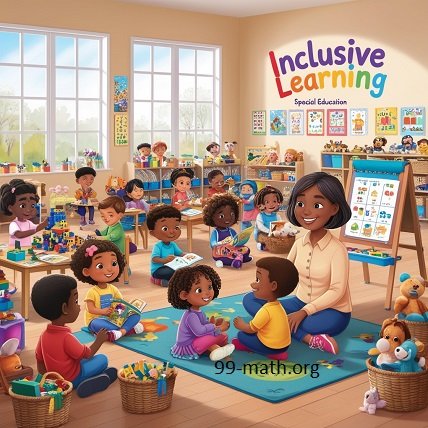Introduction
The vital field of early childhood special education (ECSE) is devoted to meeting the educational and developmental requirements of young children who are delayed or disabled. Since it establishes the groundwork for a child’s future learning and social integration, this educational stage is crucial. Since the early years are a period of rapid growth and development, addressing difficulties and promoting a favorable trajectory require early intervention and specialized support.
What is Early Childhood Special Education?
The services and assistance offered to young children (usually ages 0-5) with impairments or developmental delays are referred to as early childhood special education (ECSE). Through customized educational programs that cater to each child’s specific needs, early childhood education and care (ECSE) aims to enhance the child’s overall development and well-being. This area of study includes speech-language pathology, occupational therapy, physical therapy, and special education.
The Importance of Early Intervention
A crucial element of early childhood special education is early intervention. According to research, a child’s results can be greatly enhanced by addressing developmental delays and disabilities at an early age. Early intervention can enhance the child’s quality of life, help avoid or lessen future difficulties, and lessen the need for later, more intense services.
Key Components of Early Childhood Special Education
Early childhood special education encompasses a number of essential elements that work together to promote the growth and education of young children with disabilities. The creation and execution of Individualized Education Programs (IEPs), which are customized plans that include particular educational goals, services, and supports for each child, is a crucial component. Teaching strategies are matched to the unique needs and developmental stage of each child through the use of Developmentally Appropriate Practices (DAP).
Common Disabilities and Developmental Delays in Early Childhood
A wide range of developmental delays and impairments that might affect a child’s development and learning are addressed in early childhood special education. Typical ailments include Autism Spectrum Disorder (ASD), which has an impact on behavior, social interaction, and communication. To support the child’s development, ASD frequently calls for focused therapies. Speech therapy is a possible treatment for speech and language abnormalities, which can impede communication. These disorders include expressive and receptive language issues.
Strategies and Best Practices in Early Childhood Special Education
In order to meet the various requirements of children with disabilities, early childhood special education best practices and effective techniques are crucial. One such tactic is inclusive education, which encourages the inclusion of kids with disabilities in regular education classrooms with the right kind of assistance. This method encourages socialization and gives kids the chance to learn alongside one another. By customizing instructional strategies and resources to each child’s specific requirements, individualized instruction makes sure that learning opportunities are both interesting and successful.
The Role of Families in Early Childhood Special Education
Families are vital to early childhood special education because they offer valuable perspectives on the needs, assets, and difficulties of their children. Involving the family actively promotes the child’s growth at home and at school, increasing the efficacy of educational interventions. Families work together with teachers and therapists to create and carry out specific plans, such IEPs, and to keep track of the child’s development.
Transitioning to Elementary School
For children in early childhood special education, going from early intervention programs to a more structured educational setting is a big milestone when they enter elementary school. Families and kids may find it difficult to adjust to new habits, surroundings, and expectations during this change. Early childhood special education specialists collaborate with elementary school staff to guarantee continuity of support and prepare kids for the changes ahead in order to achieve a seamless transition.
Conclusion
For young children with impairments, early childhood special education is essential to their growth and wellbeing. This sector works to guarantee that kids realize their full potential by offering them comprehensive services, early intervention, and tailored assistance. By working together, advocating for one another, and providing continual professional growth, we can keep enhancing early childhood special education and positively impacting the lives of kids and their families.
FAQ
Read about more: oncloudshoes.org
What age group does early childhood special education serve?
Children with developmental delays or impairments between the ages of 0 and 5 are often served by early childhood special education. Services can be offered in a variety of contexts and programs.
How can I access early childhood special education services for my child?
Early intervention programs, community organizations, and your local school district can all provide you with early childhood special education assistance.
What is an Individualized Education Program (IEP)?
For children with disabilities, an individualized education program, or IEP, is a customized plan created

